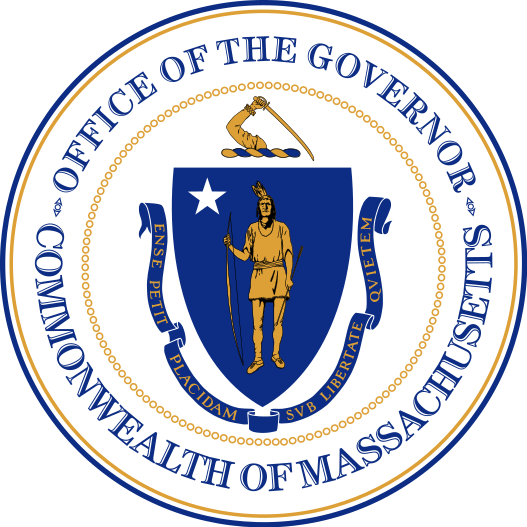- Governor Maura Healey and Lt. Governor Kim Driscoll
- Executive Office of Education
- Department of Early Education and Care
Media Contact
Karissa Hand, Press Secretary
Westfield — Today the Healey-Driscoll administration celebrated the implementation of transformative changes to how the state reimburses early education and care providers who accept state child care financial assistance, known as rates, during a round table discussion at the Roots Learning Center in Westfield. For the first time, the administration is using the cost of providing care as a metric for sechtting rates and is now making it so providers in regions with similar incomes, populations, and business costs receive similar reimbursements from the state. Together these changes have led to significant progress on addressing long-standing inequities in rate amounts by geographic region and age group of children served – ensuring that providers are being paid a fair rate regardless of where they are located.
Starting February 1st, Western Massachusetts center-based child care providers started to receive a 34 percent increase in rates for infant care (from $72.37 a day per kid to $91.18), 14 percent increase for toddler care (from $66.36 a day per kid to $75.48) and 13 percent for preschool care (from $45.82 a day per kid to $57.23). Western Massachusetts has historically had lower rate levels compared to other regions relative to the cost of care. Through the administration’s proposed changes, which were approved by the Board of Early Education and Care on January 10, 2024, this region now has the same rate amounts as central and southeast Massachusetts.
Governor Healey’s Fiscal Year 2025 (FY25) historic early education and care budget further builds on these efforts, supporting the administration’s agenda to make early education and child care more affordable and accessible for all families across the state. The budget invests $85 million in child care financial assistance rates. This includes $20 million for additional rate increases in FY25 and annualizes the $65 million from FY24 rate increases.
“Our administration knows that the high cost of child care is one of the biggest burdens facing Massachusetts families. That’s why we’ve taken action to make it more affordable and equitable for families, and to give our hardworking child care providers the support they need,” said Governor Maura Healey. “Massachusetts is home to the first school, the first library, and the first university in the country – and now, we are becoming one of the first states to base rates on the cost of providing care. This will help us ensure that providers of all sizes and in all regions, including Western Mass, receive equitable reimbursements from the state that will help them deliver the high-quality care that our littlest learners need and deserve.”
“We are committed to ensuring our children, families, and child care providers can receive and provide the best education, regardless of where they are in Massachusetts,” said Lieutenant Governor Kim Driscoll. “These rate changes are an important step to addressing long-standing inequities in rate amounts in different regions of Massachusetts and our FY25 budget proposal continues our dedication to expanding access and affordability for families across Massachusetts.”
The Department of Early Education and Care (EEC) reimburses providers of child care and out-of-school time programs that serve families receiving child care financial assistance with a daily per child reimbursement rate. Rates provide direct needs-based financial assistance to increase low-income families’ purchasing power in the market and help pay for the cost of care.
The Board of Early Education and Care unanimously approved the administration’s transformative rates proposal, making Massachusetts one of the first states in the country to use the cost of care as an additional metric when setting rates. This change better reflects how much parents are able to pay for care and the local market for tuition versus the cost of providing high quality care. Additionally, the rate changes include a 5.5 percent cost of living adjustment to rates for all child care financial assistance providers to address increasing operational costs, as well as raises center-based program rates to at least 81 percent of the cost of care for rates not already at or above the 80 percent level. Find new rate amounts.
“These approved rate changes build on our efforts to transform our state’s child care financial assistance system to be what all our children, families and early education and care providers deserve,” said Secretary of Education Dr. Patrick Tutwiler. “These new rates will help providers to recruit and retain a high-quality workforce and reduce costs for families across Massachusetts.”
“We are committed to making our child care financial assistance programs in Massachusetts family focused, accessible, dignified and equitable. The administration, in partnership with the Board, Legislature and programs, took significant steps forward this year through regulation and policy changes, as well as transformative changes to our child care financial assistance rates,” said Early Education and Care Commissioner Amy Kershaw. “All of these efforts, with an intentional focus on equity, enable our providers to better recruit and retain their staff and invest in high-quality programming, while also allowing us to reduce costs for families.”
“As a Commonwealth, we continue to take steps to in the right direction to address the needs of children, families, and providers. The Board has been focused on equitably supporting families to afford and access high-quality early education and care across the Commonwealth. This new approach to rate setting will support our collective efforts to meeting the needs of providers and families,” said Paul Belsito, Chair of the Board of Early Education and Care.
These transformative rate changes build on the administration’s work to improve the state’s Child Care Financial Assistance programs. In October, EEC launched significant reforms to these programs to simplify the application process, reduce paperwork, and better support homeless families, families with disabilities and families facing domestic violence. Together, these changes make it easier for programs to administer child care financial assistance and increased rates aim to attract more providers to participate in the system, expanding options and access for families.
Governor Healey’s FY25 budget includes $914 million for child care financial assistance, a $154 million increase over last year to support low and moderate income families. It also proposes increasing eligibility for child care financial assistance from 50 percent state median income to 85 percent state median income and includes $75 million in fair share funding to reach an additional 4,000 families with help paying for care.
“We are fortunate to have the Governor’s office leadership in the area of early education where the foundation for educational life success is formed. When children have access to preschool their academic performance is greatly unmoved throughout their scholastic endeavors,” said Westfield Mayor Michael McCabe.
“The governor's commitment to expanding access to early education is a momentous step in the right direction. Students that attend preschool experience significantly improved outcomes, including increased student attendance, academic success, and social development, along with higher graduation and post-secondary participation rates. This is truly a game changer for our kids,” said Westfield Superintendent Stefan Czaporowski.
"As an early education and care provider focused on supporting our community of working families, Square One is grateful to be a part of today's conversation where we will share the transformational impact of rate increases to our field. Prior to the current effort to migrate rate reimbursements to a true cost of care model, Square One was required to invest heavily in fundraising efforts to address the gap between government rates and actual operating expenses,” said President & CEO of Square One Dawn DiStefano. “With this investment, Square One will continue to collaborate with our generous community of donors and shift the investment to focus on imbedding supports for high quality, early learning rooted in evidence-based play, exploration and discovery with a full year, full day structure that supports and allows all families to work and attend school."
###

